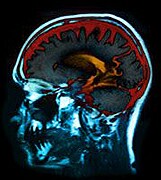
FRIDAY, July 29 (HealthDay News) — The brains of two of four former Canadian Football League players showed signs of a brain disease associated with concussions, say researchers with the Canadian Sports Concussion Project.
Preliminary findings revealed that Bobby Kuntz (of the Toronto Argonauts and Hamilton Tiger-Cats) and Jay Roberts (of the Ottawa Rough Riders) had chronic traumatic encephalopathy (CTE). Both players suffered repeated concussions during their playing careers.
CTE is characterized by an abnormal accumulation of a protein called Tau in the brain, along with other degenerative changes. The disease can cause poor memory, emotional instability, erratic behavior, impulse control problems and depression. CTE can develop into full-blown dementia.
The four players’ brains were donated for concussion research after their deaths. Kuntz died in February 2011 at age 79. He had Parkinson’s disease and a form of dementia called diffuse Lewy body disease. Roberts was 67 when he died in October 2010. He had dementia and lung cancer.
The four brains are the first to be donated to the Canadian Sports Concussion Project at the Krembil Neuroscience Center at Toronto Western Hospital. The project’s goal is to improve understanding of how concussions affect the brain.
“There are still so many unanswered questions surrounding concussion and the long-term consequences of repeated head injuries,” Dr. Charles Tator, one of the project organizers, said in a University Health Network news release.
“We are trying to determine why some athletes in contact sports develop CTE and others don’t, as well as how many concussions lead to the onset of this degenerative brain disease. Also, we need to develop tests to detect this condition at an early stage and to discover treatments,” he added.
More information
The American Association of Neurological Surgeons has more about concussion.

